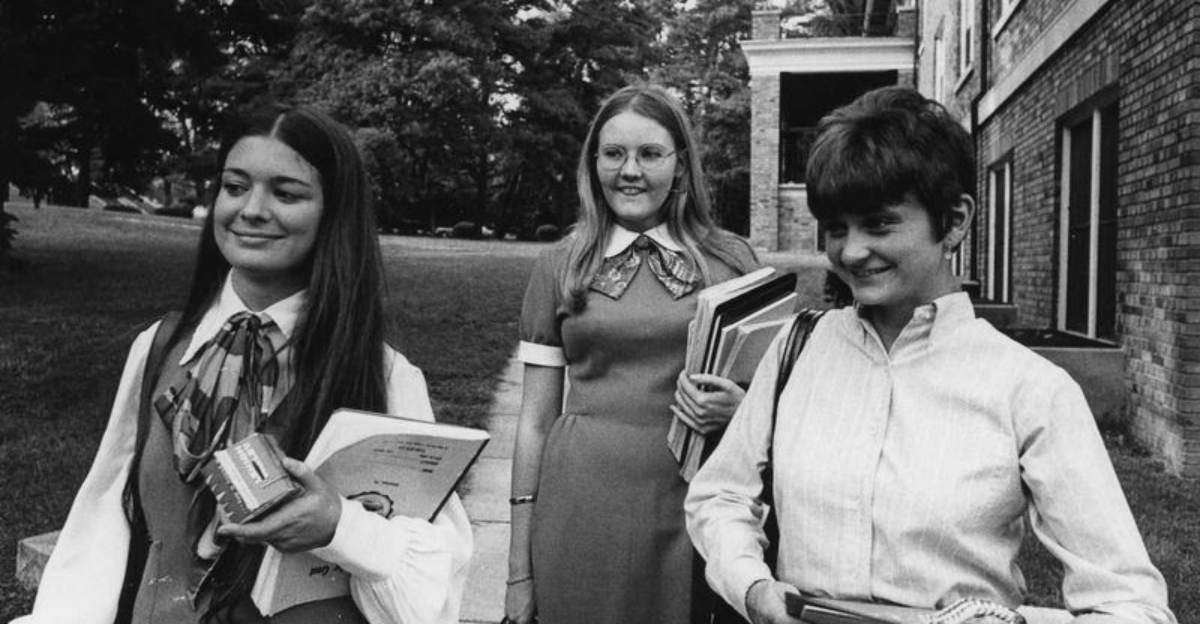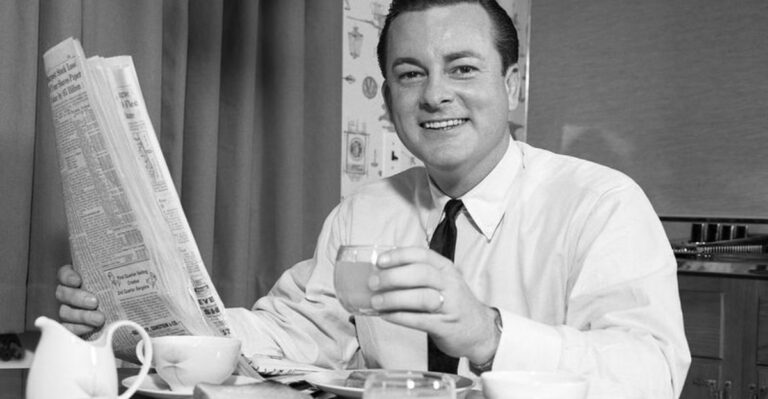16 School Lessons Boomers Learned That Turned Out to Be Totally Wrong
Boomers didn’t grow up with Google, safe spaces, or “emotional intelligence” in their curriculum. They got the slide rule, the Cold War, and some very confidently wrong life lessons—delivered with authority by teachers in polyester pants and perms.
And honestly, I can’t help but chuckle at how many of those ‘truths’ quietly unraveled while no one was looking. Sometimes it feels like half of what they hammered into our heads turned out to be more fiction than fact.
If you’ve ever rolled your eyes at a “back in my day” story from a parent or grandparent, you know the vibe. The world has changed, and so has what we know (or thought we knew). These next sixteen lessons are proof: the chalkboard didn’t always have the last word.
1. “You won’t always have a calculator in your pocket.”
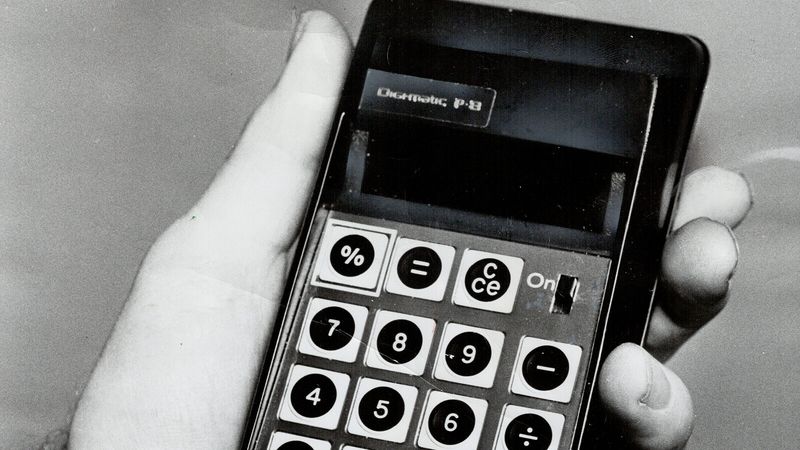
Remember the dread of long division on the chalkboard? Teachers insisted calculators were a luxury, like a hot lunch or a color TV. They swore up and down, “You won’t always have a calculator in your pocket!” How wild is it that our phones now do math, take photos, and even let us order pizza without moving?
Honestly, the irony is delicious. We carry supercomputers in our bags, and mental math is now more party trick than survival skill. I’m not saying math isn’t important, but let’s be real—memorizing multiplication tables is not the flex it once was.
Sometimes I wonder what those stern math teachers would say if they saw us now, breezing through tips and taxes with one thumb. Maybe they’d finally relax and stop threatening us with pop quizzes.
2. “Don’t question authority.”

“Because I said so.” That phrase haunted so many childhoods, right? Back then, questioning a teacher or principal was like playing with fire—nobody wanted detention for being ‘mouthy.’
Fast forward to today, and it turns out that pushing back isn’t just allowed—it’s celebrated. Healthy societies need rebels, whistleblowers, and people who ask ‘why?’ when something feels off. Blind obedience doesn’t build better communities; it keeps mistakes hidden and voices small.
I can’t help but feel a little proud when I see kids speaking up now, even if it means ruffling some feathers. Sometimes the bravest thing you can do is challenge the rules, not follow them.
3. “There are no jobs in art, music, or writing.”

Raise your hand if you were ever told that art was a ‘hobby,’ not a career. I still remember hearing, “You’ll never pay the bills with a paintbrush or a piano.” Spoiler alert: those teachers were way off.
Today, digital creators, illustrators, musicians, and writers are everywhere—building brands, launching podcasts, and sometimes making more in a week than some folks do in a month. Success stories pop up all over TikTok, YouTube, and streaming platforms.
Turns out, creativity isn’t just for the starving-artist stereotype. It’s valuable, marketable, and more than a little bit lucrative if you play your cards right. Let’s toast to the side hustles that became dream jobs!
4. “Marriage = happiness and success.”
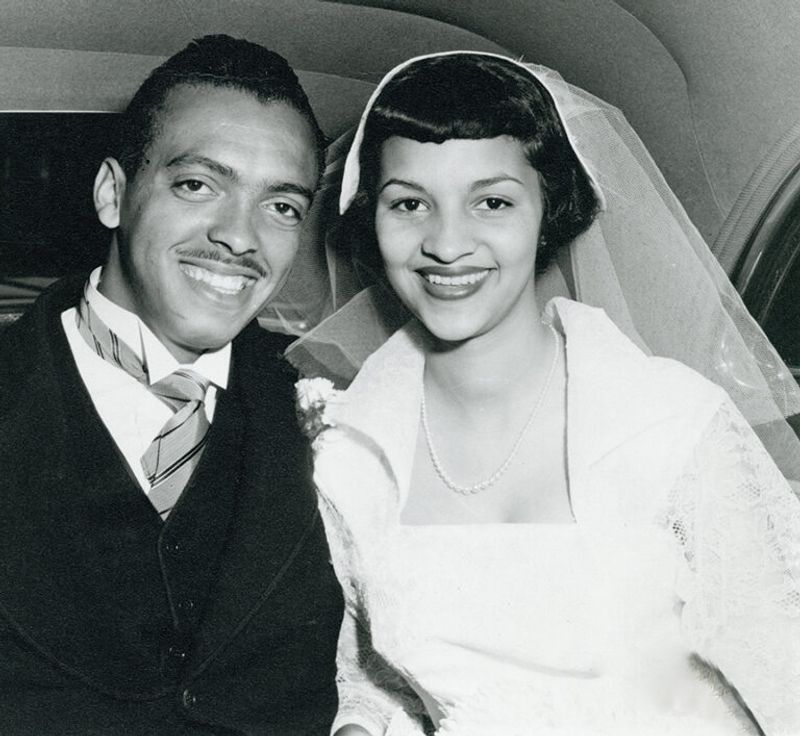
“When’s the wedding?” That question used to be a milestone, not an awkward conversation starter. For Boomers, marriage was seen as the finish line—happiness and respect came with a ring.
But here’s the truth: a wedding doesn’t guarantee a fairytale ending. Plenty of people stayed in miserable marriages, believing it was the only way to be ‘normal.’ We know now that happiness isn’t tied to your relationship status.
Some of the most fulfilled people I know are single, divorced, or have never worn a white dress. It’s freeing to realize there’s no single path to a good life—just the one that feels right for you.
5. “Boys don’t cry.”
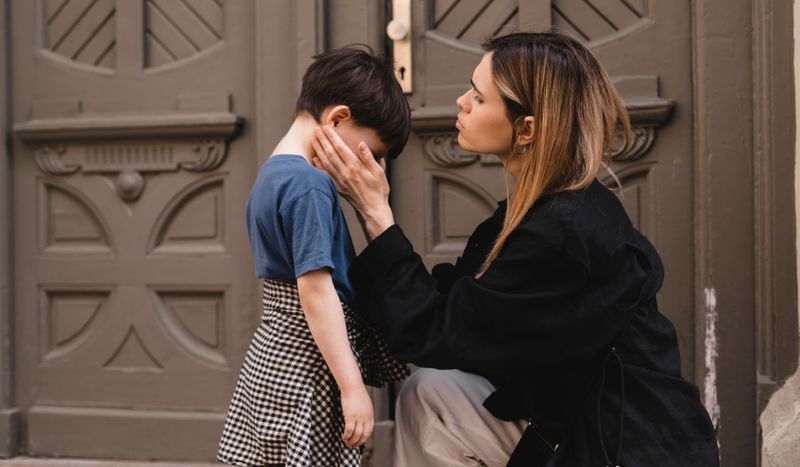
Think of every time a little boy was told to ‘man up’ when he wanted to cry. That phrase is a textbook example of emotional repression dressed up as wisdom.
Boomers grew up hearing that ‘real men’ kept it all inside. Sadly, what it really built was a wall between generations, making it harder to talk about pain or ask for help. We now know that bottling up feelings leads to anxiety, anger, and sometimes worse.
These days, it’s more than okay for boys—and grown men—to have feelings, tears and all. Vulnerability is a sign of being human, not weakness. Let’s hug it out for progress.
6. “The only path to success is college.”
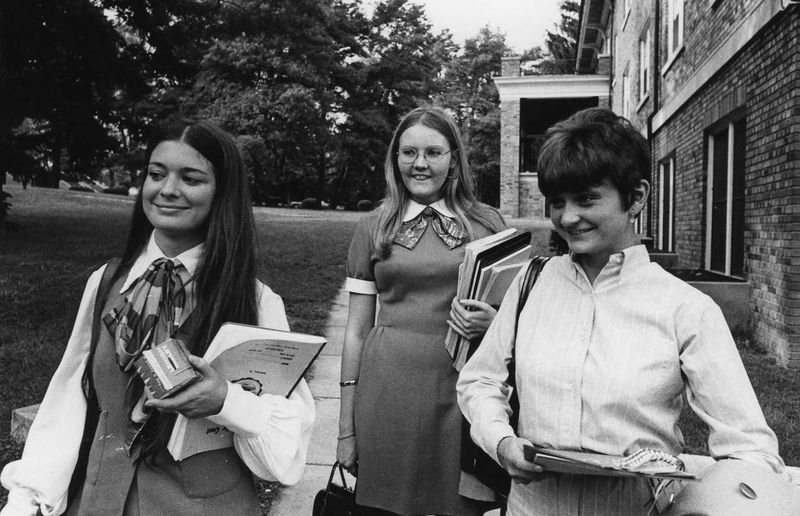
The pressure to go to college was intense. It didn’t matter if you wanted to be an artist, mechanic, or chef—college was the golden ticket. Or so they said.
Times have flipped the script. Trade schools, apprenticeships, online learning, and entrepreneurship are all legitimate options. Student loans? Not always the best souvenir.
Some of the most successful people skipped four-year degrees altogether and blazed their own trail. Turns out, passion and skill matter every bit as much as a diploma. The best life paths don’t always run through campus.
7. “Women can be secretaries, nurses, or teachers—if they have to work.”

I can’t help but laugh (and maybe cringe) at how low the career bar was set for women. Secretaries, nurses, teachers—those were the ‘acceptable’ jobs, and only if you had to work at all.
Flash forward and the office landscape looks nothing like it did in the Mad Men era. Women run companies, launch startups, and lead in every field you can think of. The glass ceiling isn’t just cracked—it’s practically in pieces.
It’s wild to think how far we’ve come, and how ridiculous those old limitations sound now. Next time someone doubts you, just send them your boss’s LinkedIn. She’ll handle it.
8. “Respect is earned by age, not by behavior.”

Age was once a golden ticket to instant respect. That meant some folks confused seniority with sainthood, regardless of how they acted. ‘Respect your elders’ was drilled into everyone—no questions asked.
But let’s be honest: respect should flow both ways. Being older doesn’t excuse bad manners, gossip, or treating people badly. Mutual respect is the real goal, not automatic deference.
I love seeing young people set healthy boundaries and expect kindness in return—no matter who’s on the other side of the conversation. That’s a change worth celebrating.
9. “You’ll stay at one job until retirement.”

There’s something both sweet and stifling about the old-school retirement party. Staying at one company for decades and getting a gold watch? That was the dream.
But now, staying put is the exception, not the rule. Job-hopping is normal, and layoffs can come out of nowhere. No shame in chasing better pay, fulfillment, or work-life balance—loyalty doesn’t always pay the bills these days.
The workforce has changed, and flexibility is the new gold standard. Sometimes you need to pack up your desk and try something new to find what truly fits.
10. “Mental health problems are a weakness.”

Growing up, no one talked about therapy—unless it was as a joke. Struggling with anxiety or depression was brushed off as being weak or dramatic. You were supposed to ‘toughen up’ and keep going.
Thankfully, that narrative is being rewritten. Therapy, medication, and honest conversations are finally seen as normal—not embarrassing. Admitting you need help? That’s strength.
I’m grateful that mental health is finally getting respect. We all deserve support, not stigma. Asking for help is nothing to be ashamed of—ever.
11. “If you work hard, you’ll be successful.”

“Hard work pays off.” We heard it in every classroom and plastered across motivational posters. The truth is, effort matters—but it’s not the whole story.
Privilege, timing, connections, and sometimes pure luck play a huge role in where people end up. Ignoring those factors is a luxury not everyone can afford. It’s not laziness; it’s reality.
Working smart, asking for help, and knowing your worth are just as important as burning the midnight oil. Don’t let anyone guilt you into believing sweat is the only currency.
12. “Don’t air your dirty laundry.”
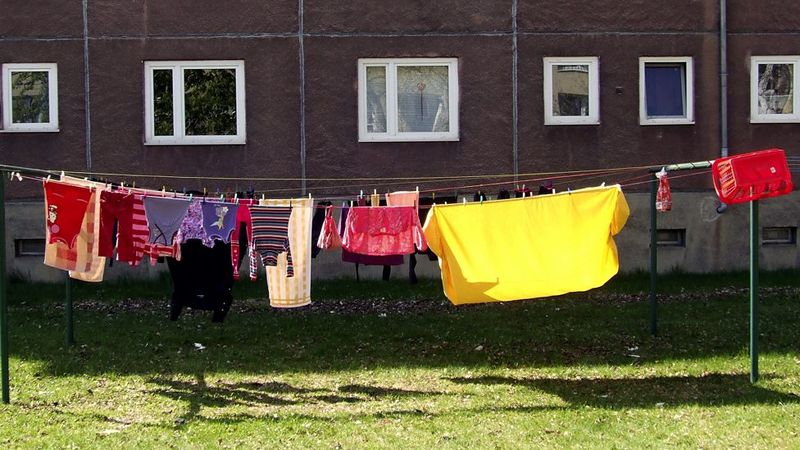
Secrets kept families together—or so we thought. The rule was to never talk about problems, especially outside the home. ‘Dirty laundry’ was for your own backyard only.
But silence breeds shame, especially around abuse, addiction, or mental health. Generations carried heavy secrets, thinking it was better to just pretend. Openness didn’t always come easy.
Now, sharing your story can be the first step toward healing. Honest conversations heal, connect, and help us all realize we’re not alone.
13. “The food pyramid is science.”

Those grain-heavy pyramids were everywhere—cafeterias, textbooks, and health classes. We were told six servings of bread a day was a recipe for health. Spoiler: it wasn’t.
It turns out, nutrition science has moved past the food pyramid’s carb obsession. Healthy eating is more about balance, variety, and whole foods than cramming in bagels and margarine. Thank goodness.
Next time you pass a loaf of white bread, remember those sad lunches and know we’re all a little wiser (and probably less bloated) now.
14. “Kids should be seen, not heard.”

Can you hear the hush? Kids were expected to sit quietly, speak only when spoken to, and never challenge adults. Voices were small, and questions were rare.
The result? Generations who struggled to express themselves or ask for what they needed. Emotional intelligence wasn’t even a concept, let alone a curriculum topic.
Thankfully, parenting today is about listening and encouraging children to share their thoughts. Kids’ voices matter, and that’s a lesson worth raising a hand for.
15. “If you’re not married with kids by 30, something’s wrong.”
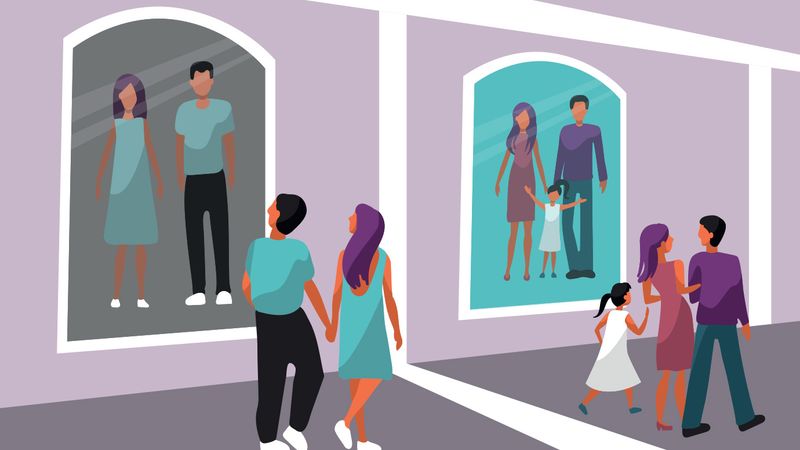
Back in the day, life was practically a checklist: graduate, marry, buy a house, have kids—all before blowing out 30 candles on your birthday cake. Anything else? Total scandal.
But life has its own pace. Some people find love at 45, start a business at 50, or choose not to have kids at all. None of those choices are failures.
We’re living proof that there’s no ‘right’ timeline. Happiness doesn’t come with a deadline or a white picket fence. Your journey is yours alone.
16. “America is the greatest country in the world—no question.”
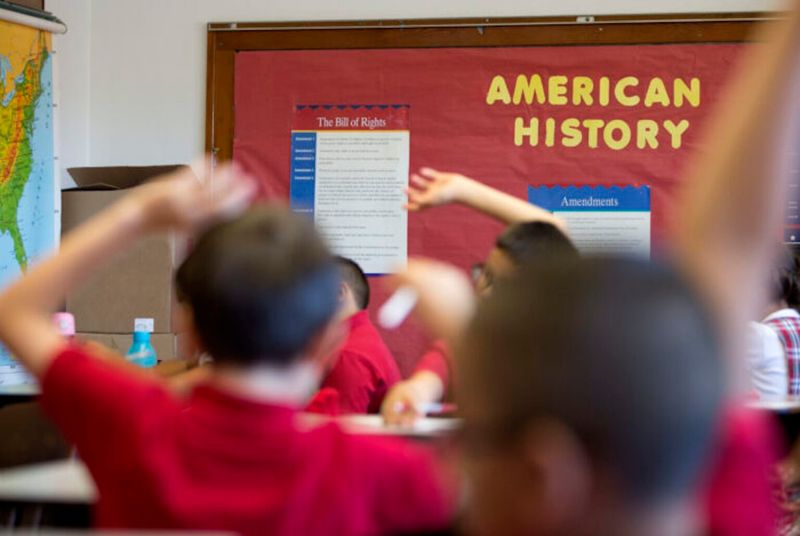
Every morning started with the Pledge and a side of USA-is-number-one. Questioning that was almost unthinkable. But unexamined pride isn’t as healthy as we were led to believe.
Learning about other cultures, history, and the world’s challenges has brought needed nuance. Healthy patriotism leaves room for growth, critique, and truth-telling. The world isn’t a contest.
These days, understanding where we stand—flaws and all—helps us grow. Blind love is out; honest engagement is in.

